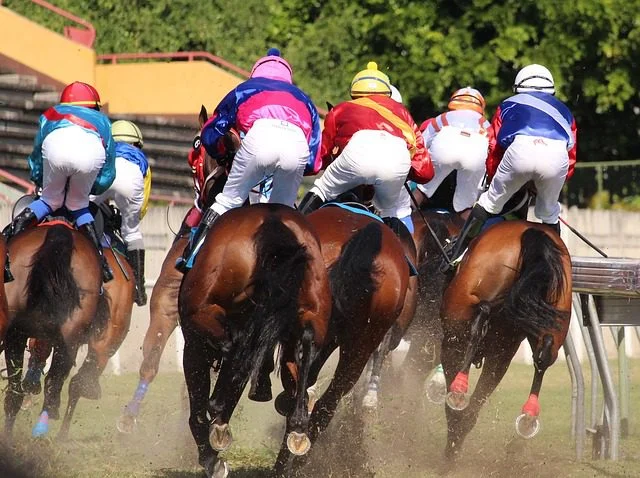Earlier this month, the year-long New Hampshire legal saga surrounding the forced sale of Andy Sanborn’s Concord Casino came to a close. The process was drawn out and contentious, however in the end it didn’t actually centre around the casino but around a historical horse racing (HHR) licence.
Sanborn, a former New Hampshire state senator, was forced to close and sell the casino last year. Attorney general John Formella last August accused Sanborn of misappropriating $844,000 (£660,846/€803,192) of Covid relief funds related to the casino and other businesses. No charges have been filed for that investigation, but Sanborn was arrested on 18 October on a separate charge for misrepresenting the casino’s gross receipts in order to obtain more relief funds.
After the first investigation was opened, Sanborn and the state began a legal battle that lasted almost a year. He was originally given a June deadline to sell, but that was extended multiple times. A deal was said to be in place for months but the state ultimately refused to sign off in late November.
Sanborn’s team has vowed to appeal the decision. But as of now it would appear that all the months of back-and-forth were for naught. In the aftermath of the saga, more details are slowly emerging. The Concord Monitor reported on 8 December that at least two companies – Bettor Investments Inc and Full House Resorts – were involved in discussions. It’s unclear if either was the prospective buyer who was turned down.
In the end, all the fuss related to the sale was not actually about the casino itself. It’s a small facility inside a sports bar. Someone could still buy the real estate if they wished. Rather, the prize here was Sanborn’s historical horse racing (HHR) licence, which is now suspended for at least two years.
HHR becoming a staple among gaming offerings
Since the turn of the century, HHR machines have evolved into a distinct form of gaming that has revitalised numerous ailing markets across the US. They are not Class III machines, which are the “Las Vegas-style” slots most are familiar with. They are also not Class II machines, which are bingo-based and used in tribal casinos around the country.
Instead, they allow players to “handicap” previously run (historical) horse races. The names of horses, jockeys, races and tracks are withheld, in an effort to randomise play. Most players simply “autopick” their selections in order to replicate more traditional spin-style slot play. The back-end maths to make these systems functional and compliant is complicated.
While HHR machines differ from Class III in that they do not operate independently and have to connect to a central determinate system, they are similar to Class II in that they are a form of pari-mutuel wagering. That means that players bet in a pool against each other rather than against the house.
As technology has advanced, HHR machines are now visually virtually indistinguishable from Class III and Class II counterparts. Nearly all major suppliers have started to port over their games into HHR format, meaning that HHR casinos look and feel just like any others.
Sector has been invaluable for tracks, regional markets
For several decades, the US horse racing industry has been declining. In a lot of cases, race tracks are located in rural areas in states without much gaming. HHR has thus emerged as an effective way for tracks to stay open and even grow. States also benefit from the rejuvenated revenue streams.
Over time HHR has spread outside tracks and into regional casinos such as Concord. As such, several smaller operators such as Churchill Downs have now invested in the space as a way to grow in small pockets of the country without having to compete with big markets and deep-pocketed competitors like MGM and Caesars.
Buddy Frank, a longtime slot executive and principal at BF Slot Strategies, told iGB that there’s a simple reason for the growth of HHR: “Because that’s the only thing that’s legal.”
Suppliers and operators have done well to improve the technology and experience of HHR gaming. So much so, Frank said, that HHR has in some ways become a quicker way to offer Class III-style gaming without having to go through the legislative legwork associated with it. In many cases, the games can be grandfathered into existing horse racing or pari-mutuel regulations.
“These are just slot machines and when the bottom line comes to it, there’s no difference really, other than how the outcome is determined,” he said. “And it’s all because (stakeholders) want to get around the laws.”
Several states seeing quick growth
Regardless of how it came to be and why, there’s no denying the success of HHR.
Take New Hampshire, where Sanborn’s saga is playing out. That state legalised HHR in 2021. According to the state lottery commission, total handle for October was $176.9 million. Revenue for operators was $11,597,471, a year-over-year increase of 43%. Through October, year-to-date operator revenue was $105,445,230, a 64% increase over last year.
Kentucky, America’s horse racing capital, also legalised in 2021. In July of that year, the first with data, handle was $548.9 million. As of this October, that had ballooned to $819.6 million. Virginia is another big HHR market – its first revenue report from April 2019 shows $15 million in handle, compared to $415.2 million this past August, the most recent data.
Such figures make it easier to see why companies like Bettor Investments and Full House may be interested in such a licence. Sanborn’s is temporarily unobtainable. But lucky for New Hampshirites, there does appear to be a new HHR casino on the horizon. The Cordish Companies is building a $200 million casino with 900 HHR machines in Salem, slated to open next year.



